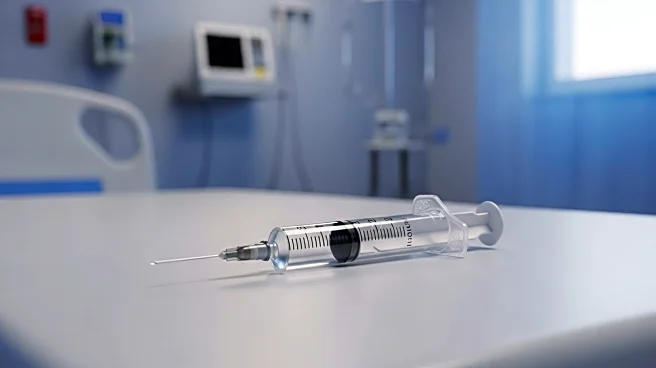What's Happening?
French anaesthetist Frederic Pechier is on trial, accused of intentionally poisoning 30 patients, resulting in 12 deaths, at clinics in Besancon, France. The investigation began in 2017 after a patient suffered a cardiac arrest during surgery, revealing high potassium levels in IV bags. Pechier allegedly tampered with medical supplies to create emergencies, showcasing his resuscitation skills. Initially above suspicion, Pechier's actions were uncovered following a series of suspicious cardiac arrests. He faces life imprisonment if convicted, though he remains under judicial supervision.
Why It's Important?
The trial of Frederic Pechier underscores significant concerns about patient safety and trust in medical professionals. The case highlights the potential for abuse of power within healthcare settings, raising questions about oversight and accountability. If convicted, the trial could lead to stricter regulations and monitoring of medical practices in France and beyond. The case also serves as a reminder of the importance of vigilance and thorough investigation in preventing medical malpractice and ensuring patient safety.
What's Next?
As the trial progresses, the outcome could influence future legal and medical protocols, potentially leading to reforms in how medical professionals are monitored. The case may prompt healthcare institutions to implement more rigorous checks and balances to prevent similar incidents. Additionally, the trial's conclusion could impact public perception of the medical profession, emphasizing the need for transparency and ethical conduct.









